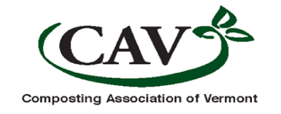Community Meeting: Planning Pollinator Corridors in VT
/Description
The Vermont Ecosystems Working Group Invites you to a community meeting to explore the possibilities for creating Pollinators Corridors in Vermont
When: Thursday June 27th, 10:30am -1:00 pm
Where: Temple Sinai, 500 Swift Street, South Burlington, VT 05403 (802-862-5125)
For more information: Natasha Duarte at 802-373-6499 / Natasha@CompostingVermont
Agenda:
10:30-10:45 Meet and Greet
10:45-10:50 Call to Order (Natasha Duarte)
10:50-10:55 Welcome (Rabbi David Edleson)
10:55-11:00 Welcome (Joan Lenes, former VT Representative from Shelburne)
11:00-11:15 Invited Speaker: Vt. Lieutenant Governor David Zuckerman
11:15-11:30 Q&A (moderated by Joan Lenes)
11:30-11:45 Introduction to the Gund Institute’s Apis Fund (Charles Nicholson)
11:45-12:00 Introduction to the Ecosystems Working Group (Natasha Duarte)
12:00-12:45 Round Table discussion & Brown Bag Lunch (Frank Guyer)
12:45-1:00 Concluding Remarks (Natasha Duarte)
Ecosystems Working Group Steering Committee members:
Dr. Anju Krivov (UVM, Community Development and Applied Economics): 978-870-5729
Beret Halverson (UVM, Extension Master Gardener/Master Composter Program): 802-656-1777
Natasha Duarte (Composting Association of Vermont): 802-373-6499
Frank J. Guyer/Geier (3Bs and C non-profit): 802-355-1976
*The Ecosystems Working Group meets 3 times / year: January, June, October
OTHER IMPORTANT INFO:
This event is free but pre-registration is required so we know how many people to expect.
Sponsors and volunteers are needed; Donations welcome! Please contact Natasha if you are interested.




